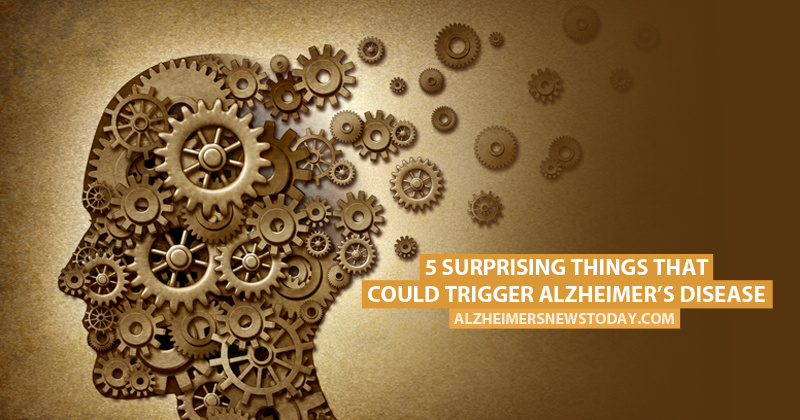5 Surprising Things That Could Trigger Alzheimer’s Disease
Written by |

While the exact cause of Alzheimer’s disease is not yet known, researchers suspect that certain lifestyle factors may play a role in the development of the disease, some of which may surprise you. With help from prevention.com we’ve put together a list of things that may contribute to a person’s odds of getting Alzheimer’s disease:
Thinking Negatively About Aging
Researchers at Yale University think that a person’s outlook on life may have a bearing on whether or not they develop Alzheimer’s disease. Negative thoughts about the aging process are thought to set off changes in the brain which could bring on Alzheimer’s. This is something that can be remedied, and there are plenty of positives to look forward to in later life which people can concentrate on.
Lead
Researchers have found that people with high blood pressure or heart disease are likely to have higher than normal levels of lead in their blood and some believe that high lead levels may contribute to the onset of Alzheimer’s. Paints contained lead before 1978, so if you live in an old house then it may be worth having your paint work checked.
Eating a diet high in antioxidants will help to offset the side effects of high levels of heavy metals. In addition, you should try to avoid vinyl products as these often contain lead.
MORE: Discover ten interesting facts and figures about Alzheimer’s disease.
Medications
Some of the most commonly prescribed medications have been linked to Alzheimer’s disease. Anticholinergic drugs are the most worrisome, these are medicines used as anti-suppressants for gastrointestinal problems, cough and cold remedies, allergies, and bladder problems.
The more these medications are taken, the higher the risk of developing dementia or Alzheimer’s becomes.
DDT
Altough DDT was banned for use as a pesticide in the 1970s, it’s still possible for DDE—a dangerous byproduct of DDT—to enter the environment through waste sites and more worrisome, through food. Foods that may contain DDE are dairy products, meat, poultry and fish.
Depression
Researchers have found that depressed people are 1.5 times more likely to develop dementia or Alzheimer’s disease than non-depressed people. Elderly people have almost double the chance of developing Alzheimer’s if they have depression (Source: WebMD)
MORE: A study determines the link between depression and Alzheimer’s disease.
Alzheimer’s News Today is strictly a news and information website about the disease. It does not provide medical advice, diagnosis or treatment. This content is not intended to be a substitute for professional medical advice, diagnosis, or treatment. Always seek the advice of your physician or another qualified health provider with any questions you may have regarding a medical condition. Never disregard professional medical advice or delay in seeking it because of something you have read on this website.





